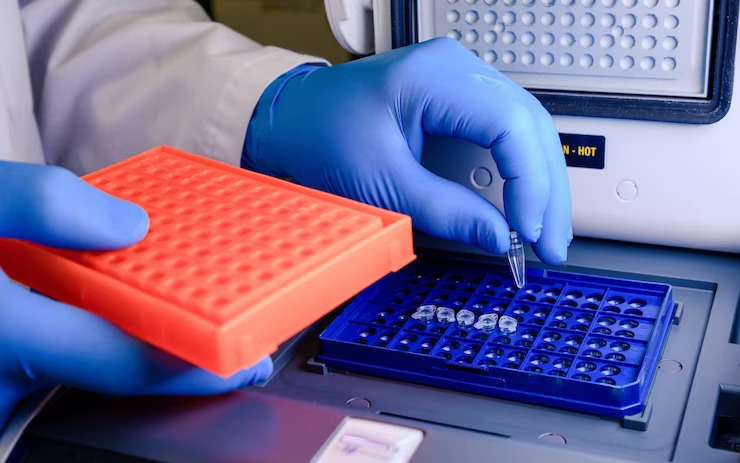Preventive Healthcare
CMP (Comprehensive Metabolic Panel) Blood Test: Uses, Procedure and Result
6793 Views
0

What is a CMP Test?
A comprehensive metabolic profile or CMP test is a blood test that measures 14 substances routinely present in the blood. The level of these substances gives a deep insight into your body’s functioning, metabolism, and chemical balance. Your doctor will recommend a CMP test when they want to diagnose, screen, or monitor some health conditions.
What Does a CMP Test Comprise?
CMP test is a blood test that evaluates and monitors 14 parameters, namely:
- Alanine transferase (ALT): A liver enzyme
- Albumin: A protein produced by the liver that carries important substances through the body and prevents the blood from leaking outside the vessels
- Alkaline phosphatase (ALP): An enzyme found throughout the body that supports various body functions
- Bicarbonate: An electrolyte found in the blood that indicates the amount of carbon dioxide in the blood
- Bilirubin: A waste product produced by broken-down red blood cells. The liver plays a central role in eliminating bilirubin from the body.
- Blood urea nitrogen (BUN): This substance measures urea nitrogen, a type of waste product in the blood
- Calcium: An essential mineral in the body found predominantly in bones, teeth and muscles
- Chloride: A critical electrolyte that participates in several body functions with sodium, potassium and bicarbonate
- Creatinine: A waste product produced as a normal by-product of muscle metabolism
- Glucose: Elevated levels of blood glucose indicate diabetes
- Potassium: An essential mineral present in all the body tissues
- Sodium: An electrolyte that maintains the body’s fluid and acid-base balance
- Total protein: A measurement of albumin and globulin in the blood
What is a CMP Lab Test Used For?
A CMP test is used to diagnose, screen, or monitor various body functions and processes, including:
- Kidney and liver health
- Levels of blood protein
- Blood sugar levels
- Fluid and electrolyte balance
- Metabolism
- Acid-base balance
Why Do You Need a CMP Test?
Your doctor may recommend that you undergo a CMP test as part of your regular body checkup. You may need a CMP blood test if your doctor thinks you may have liver or kidney disease or issues with your electrolyte or fluid balance.
When Do You Need a CMP Test?
While a CMP test is part of routine health checkups, it helps people who experience symptoms like fatigue that may be caused due to many health conditions.
Other reasons why a CMP test is useful are:
- To monitor if you have had an abnormal test earlier and your doctor wants to repeat the test.
- To evaluate your blood parameters after surgery or treatment. For example, a CMP test is a great tool to use before starting a new kidney or liver medication.
Since there are no guidelines about when to use a CMP test, it is usually performed when prescribed by a doctor or as part of a routine health workup.
How Do You Prepare For a CMP Test?
Since the CMP blood test measures a wide range of parameters, including blood glucose, you may need to fast before your test. This means you cannot eat anything for at least 10-12 hours before the test. You are allowed to drink water.
Your doctor may also evaluate your medications and any nutritional supplements you may be taking. If these drugs or supplements interact with the CMP test, your doctor may ask you to discontinue them.
However, don't stop taking medications without your doctor’s consultation.
What Happens During a CMP Test?
When you arrive at a clinic for your CMP test, you will be seated in a comfortable chair, and the healthcare professional or a phlebotomist will take a blood sample from a vein in your arm.
A small needle is inserted into the vein, and the blood sample drawn is collected in a test tube or a vial. You may feel a slight sting when the needle goes in and out of your skin. The entire process takes around five minutes or less.
What Do The CMP Test Results Mean?
Since CMP is a routine test, your results will be available a few days after the lab has received your blood sample. Once the results are ready, they will be shared with you and your doctor.
The CMP lab test results vary based on several factors:
- Age
- Gender
- Medical history
The test results also vary based on the lab. Always get your CMP test results evaluated by your doctor.
Here are the normal ranges of the 14 parameters in the CMP test.
| Parameter | Normal Range |
| Albumin | 3.5 to 5.5 g/dL |
| ALP | 30 to 120 IU/L |
| ALT | 10 to 40 IU/L |
| AST | 10 to 40 IU/L |
| Bicarbonate | 23 to 29 mEq/L |
| Bilirubin | 0.3 to 1.0 mg/dL |
| BUN | 8 to 20 mg/dL |
| Calcium | 8.6 to 10.2 mg/dL |
| Chloride | 98 to 106 mmol/L |
| Creatinine | 0.5 to 1.1 mg/dL (females)0.7 to 1.3 mg/dL(males |
| Glucose | 70 to 99 mg/dL |
| Potassium | 3.5 to 5 mEq/L |
| Sodium | 136 to 145 mEq/L |
| Total protein | 5.5 to 9 g/dL |
If your test results are beyond the normal range, your doctor may prescribe additional tests for further evaluation. For example:
- An abnormal range of liver enzymes indicates you may have a liver condition.
- Abnormal BUN and creatinine levels indicate your kidneys may not be functioning normally.
- A high blood glucose level indicates diabetes.
CMP Test Risks
Blood tests carry little or no risk. Few people may experience slight tenderness or bruising at the site of the needle prick after the CMP test. These symptoms usually resolve by themselves in a few hours to a day.













1701259759.webp)









 WhatsApp
WhatsApp